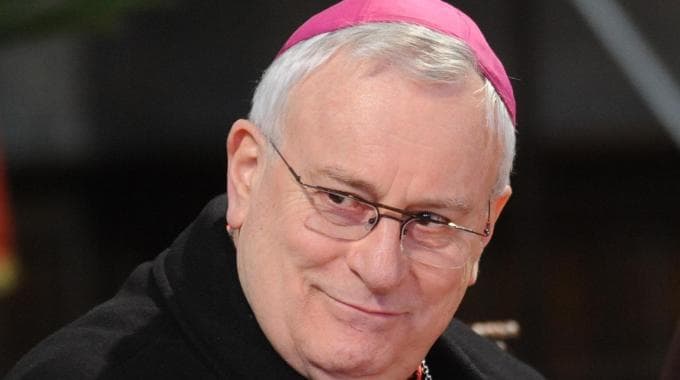ROME – As Italy’s new government tentatively establishes itself after a three-month hiatus, the president of Italy’s bishops’ conference said that the Church will be “vigilant” concerning the new administration while holding on to its “inalienable principles.”
“We will be the critical conscience,” said Cardinal Gualtiero Bassetti, president of the Italian episcopal conference (CEI), at a Thursday press event concluding its four-day summit in Rome.
“Everything that is good we will appreciate, but for that which goes against the family, the human person, the immigrant, or whomever, we will be the critical voice,” he added.
National elections in early March led to an uncertain result, with the left-leaning Five Star movement and the right-wing and populist Northern League splitting the electorate. Under Pope Francis’s pontificate, the Italian Church has remained largely silent during three months of political turmoil that followed, a significant change for a country where politics and religion are often intertwined.
Bassetti’s comments, both at the opening of the bishops’ summit and at its end, point to a Church ready to get back in action but with two major differences: a shift to “inalienable principles,” less focused on bioethics and more on integral human development, and a focus on formation of a new class of politicians trained in Catholic social teaching.
The cardinal pointed to the centrality of the human person, employment, the defense of the constitution, the fight against illegality, the promotion of a more encompassing society and the inclusion of those who live at society’s margins as the conference’s inalienable principles.
“The North Star is a renewed commitment of Catholics,” Bassetti said, emphasizing the history of Catholic political activism in Italy.
“In our society today, the thinking of Catholics is still necessary. What form that will take is not up to the Church to decide,” but, he added, there needs to be more attention toward political formation and the teaching of Catholic social doctrine in schools.
“We are willing to cooperate,” Bassetti said, “because we have a Gospel that guides us and as the pope said, we don’t want to be the smoke but the fire. And fire burns the unnecessary hay sometimes.”
The cardinal said that in the three months while the government was being shaped, already-existing issues in Italy “were multiplied and accentuated,” and “as pastors we saw the consequence.” He also praised Italy’s constitution and President of the Republic, Sergio Mattarella, as guarantors of democracy and certainty.
“What can the bishops ask of the new government? That these men who will take over such a high magisterium give us a sign of maturity and know how to handle these issues,” Bassetti said. “If politics aren’t just, there will never be peace.”
Italian lawyer Giuseppe Conte, a self-proclaimed Catholic, was tapped by the governing parties as the new Prime Minister. The president of CEI expressed hope that having taught law in the Italian city of Florence, Conte has acquired the “rich, Christian humanism” that inspired many politicians before him.
At the beginning of the bishops’ summit, Pope Francis offered three reflections for the Italian Church: the drop in the number of vocations in Italy, the overbearing number of dioceses in the country, and a call back to the basics of poverty and transparency for the Church wrought in recent economic scandals.
“You all know that vocations are lacking in Italy,” Bassetti said, pointing to many causes, including a “demographic winter” but also to a lack of “fire” in the clergy’s witness.
The issue of the dioceses “will be a pretty long process,” the cardinal said, adding that there will be a need to aggregate dioceses while respecting their historical tie to their territories. The same goes for transparency, Bassetti said, “which is something that increases constantly,” drawing on new tools now at the Church’s disposal.
“We aren’t missing anything to do a good balance for the parish,” he said. “It’s all clear and regular.”
While touching on many subjects, the bishops’ summit focused on communication, which, Bassetti said, is “necessary, because otherwise we lose an important opportunity and we don’t live in the times.”
A central moment will be the Vatican’s upcoming Synod of Bishops on youth, which the cardinal interpreted as a continuation of a previous summit of bishops on marriage.
“There is a great movement in all the dioceses,” Basssetti said. “It pleased me to see the enthusiasm of the bishops.”













